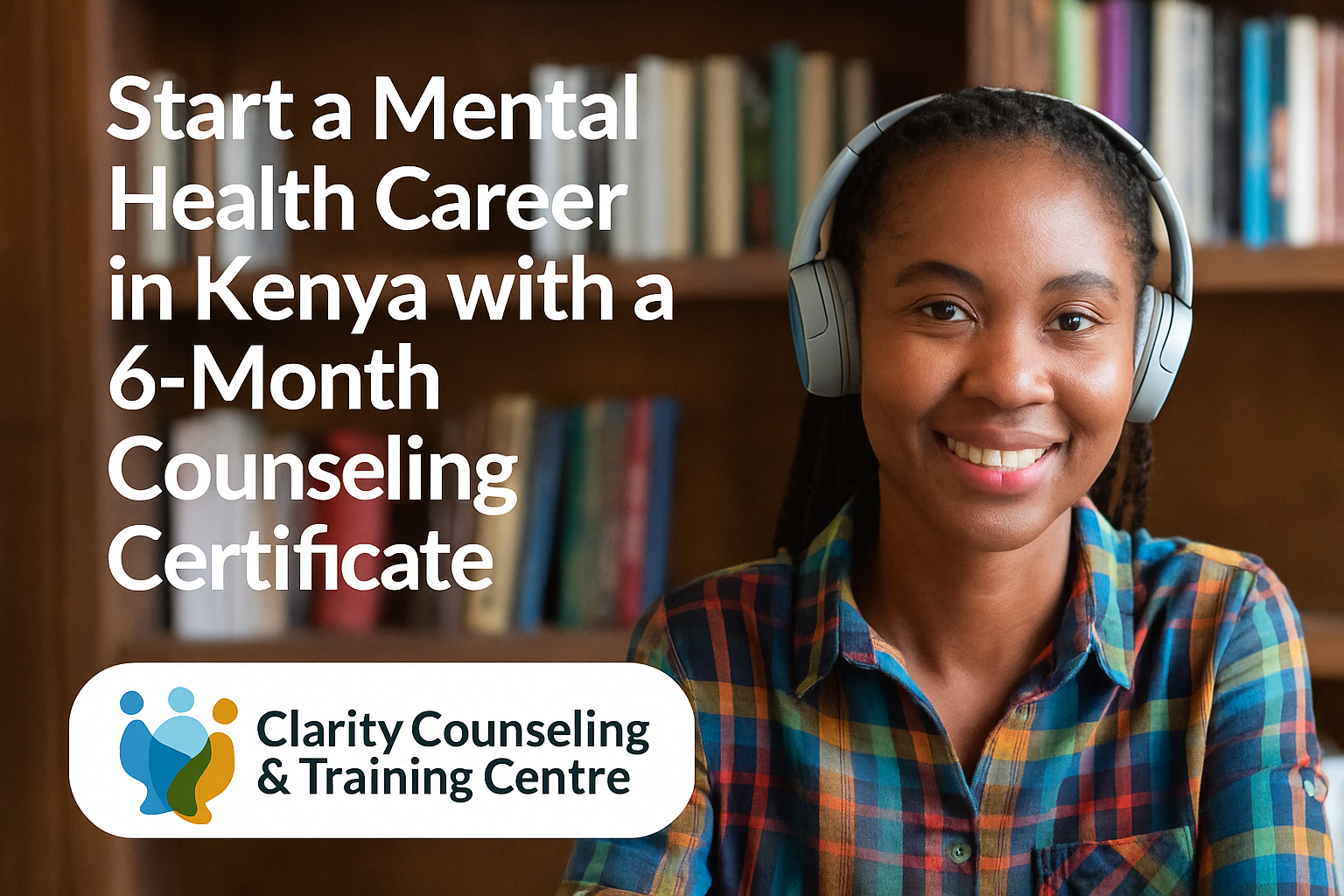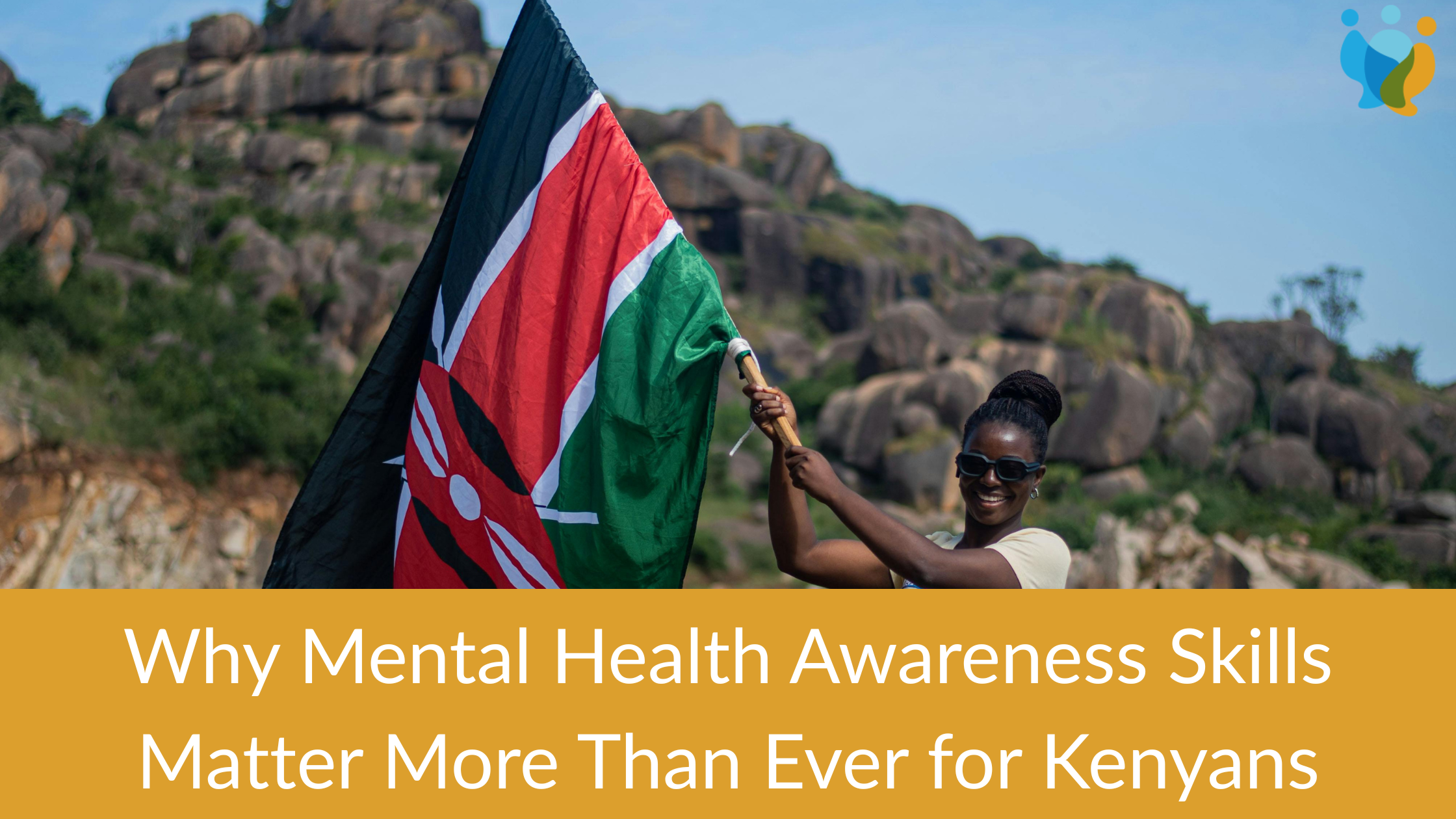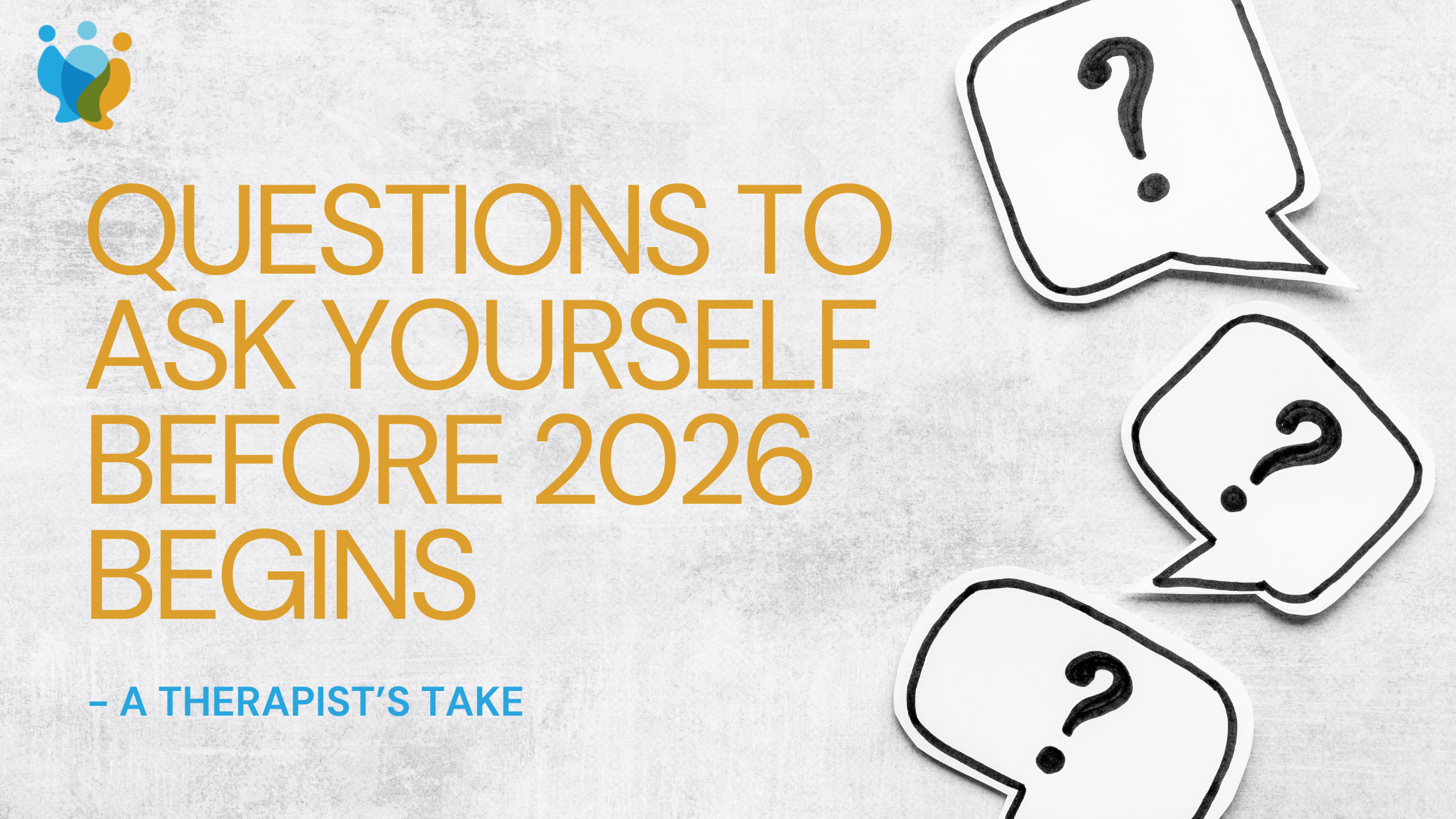Finding Harmony: How Therapy in Kenya Can Empower You to Achieve Work-Life Balance

Finding Harmony: How Therapy in Kenya Can Empower You to Achieve Work-Life Balance
In today’s fast-paced, always-connected world, the lines between work and personal life are increasingly blurred, especially in Kenya’s growing urban workforce. Many of us find ourselves constantly on the clock, with little room for family, social connections, or self-care. In fact, a recent report from the International Labour Organization shows that one-third of workers globally clock over 48 hours each week, leaving precious little time for anything else.
This relentless pace has made work-life balance a common yet challenging goal, often impacting mental health, personal relationships, and physical well-being.
Work-life balance is about managing both personal needs and responsibilities—like rest, raising children, and spending time with family and friends—alongside work obligations. It’s about creating a healthy equilibrium between your professional and personal life. This balance means setting boundaries, prioritising tasks, and making space for the things that matter to you outside of work.
An unhealthy work-life balance often leans too heavily toward work, where responsibilities at the office overshadow time for parenting, rest, recreation, and personal activities.
While work plays an essential role in our lives, contributing to both well-being and fulfilment, a poor work-life balance can be detrimental to our physical health, mental health, and overall well-being.
Why is Work – Life balance important in Kenyan Companies?
- Improves productivity: Employees who take time out of their work to rest, and recharge come back to work feeling energised and ready to put more into their work.
- Prevents burn-out: Taking leave, taking breaks away from work, adequate rest and pursuit of personal interests and hobbies protects people from burn-out.
- Results in fewer health problems: Stress related illnesses are likely to occur in situations where people work long hours, have heavy workloads, and constant connectivity. A good work-life balance boosts the body’s immune system, which improves overall health.
- Brings greater satisfaction and personal fulfilment: A balanced life leads to one having a sense of purpose and leading a meaningful life which comes with one having more control over their time.
- Increases creativity: Rest plays a crucial role in sparking innovative ideas, by reducing mental fatigue, reducing mental clutter, and enabling one to focus.
- Improves relationships: Spending quality time with loved ones can strengthen your relationships and improve your overall happiness.
What Determines Personal Work-life Balance in Kenya?
In Kenya, the balance an individual strikes between how much time, and energy they devote to their work vs how much time and energy they devote to their family, and their own social needs is largely determined heavily by the following personal factors:
1. Work-Dependent Self-Worth
For many people, having a job is more than just earning a pay check; it’s a big part of who they are. A job meets needs like achievement, independence, and even a sense of belonging. However, staying unemployed for six months or more can lead to a type of situational depression called unemployment depression, brought on by job loss or extended joblessness. This can make people feel a deep loss of purpose.
It’s crucial, however, to separate self-worth from work. Many people who don’t make this separation end up prioritising their jobs above everything else, using work to feel valuable.
This can lead to overworking, neglecting rest, and investing all their energy in their jobs—while relationships, family, and personal well-being are left behind. It’s not uncommon for individuals who tie their self-worth to their careers to take on too much responsibility, work long hours, and skip rest and leisure time altogether.
2. Compensation
This is a defence mechanism where people put extra focus and effort into one area of their lives to make up for struggles or setbacks in another. Work often becomes the area where people over-focus, especially when other parts of life aren’t going well.
For example, someone facing issues in their marriage may end up spending more time and energy on their job. Work feels predictable and manageable compared to a relationship, where the outcome isn’t entirely within their control. Similarly, a person whose self-esteem is closely tied to their job might pour themselves into their work as a way to silence self-doubt. Achieving success at work temporarily reassures them, proving to themselves and others that they are indeed “good enough.”
3. Lack of Boundaries and Assertiveness
Boundaries are limits—whether physical, emotional, or related to time—that we set to protect our well-being, comfort, and personal space. They play a crucial role in maintaining healthy relationships and safeguarding our sense of self. Assertiveness and boundaries go hand in hand, as only an assertive person can confidently establish and uphold healthy boundaries for themselves.
Examples of Boundaries at Work
Time Boundaries
These boundaries revolve around how you manage the time you spend working, ensuring that one does not spend more time working in a manner that does not allow them to focus on other areas of their lives.
Examples of time boundaries are:
- Taking leave when it is due.
- Taking breaks away from work during the day when they are due.
- Working within agreed working hours.
- Not taking work home.
- Not responding to emails or work calls after work, during the weekends or during leave.
Emotional Boundaries
These boundaries involve protecting one’s emotional well-being by ensuring that one has a defined limit of the things that others are not allowed to do in their interactions with them. Emotional boundaries help others understand what is okay or not okay with you so that they know how to relate with you.
Examples of emotional boundaries include:
- Confronting a colleague about their disrespectful behaviour towards you.
- Leaving a room, or refusing to participate in a conversation when the other party is yelling at you.
- Saying no to requests that one finds manipulative or demeaning.
- Speaking your mind even in the presence of those who try to subdue others.
- Telling a colleague who complains endlessly that you need to go instead of listening to them complaining for hours on end.
- Asking to be paid on time according to the contract; or asking to be paid for work done.
- Overtly turning down unwanted sexual advances by another colleague.
Workload Boundaries
These kinds of boundaries revolve around how one manages their workload, hence protecting oneself from overworking. Examples of workload boundaries involve:
- Politely turning down more work when one already has too much on their desk.
- Communicating to the boss about unrealistic work deadlines rather than trying to work within these deadlines.
- Delegating work.
- Asking for extra staff members to be hired if under-staffing leads to work overload.
4. Beliefs About Rest
Belief systems are fundamental frameworks that shape how we understand the world and our role within it. They influence our values, behaviours, and overall worldview. Though these beliefs vary across cultures and individuals, they are central to how we live our lives. For many, certain modern beliefs about rest contribute to poor work-life balance. Some of these include:
- Rest equals laziness: This belief discourages taking necessary breaks, associating rest with a lack of ambition.
- Success requires overworking: This mindset drives people to push past healthy limits, risking burnout to feel productive.
- Distraction is rest: Overindulging in TV, social media, or other activities doesn’t provide true rest but often leads to mental fatigue.
- A lack of urgency means idleness: This constant need for urgency can cause anxiety, making it difficult to slow down or take breaks.
- Only physical rest matters: In reality, rest includes emotional, mental, and spiritual components. Focusing solely on physical rest can still lead to exhaustion.
Genuine rest requires disconnecting from the world and recognizing the need for different types of rest in order to achieve a balanced life.
5. Perfectionism.
A perfectionist has a strong drive to live a flawless life, avoiding mistakes at all costs. If you’re a perfectionist, you may set idealistic, rather than realistic, goals and seek love, respect, and acceptance through your performance—a pursuit that can be exhausting. Perfectionism at work often results in spending extra time on tasks due to:
- Difficulty making decisions: Perfectionists tend to overthink and analyze situations—known as “paralysis by analysis”—causing them to spend more time on tasks out of fear of making mistakes or failing.
- Reluctance to delegate: Perfectionists often hesitate to delegate, fearing others may not meet their high standards. This lack of trust leads to work overload.
- Excessive rehearsal: Perfectionists may repeatedly go over completed work or rehearse presentations to ensure everything is flawless. While this can improve performance, it also results in long hours and added stress.
Perfectionism at work, while often aimed at achieving high standards, can contribute to burnout and work-life imbalance if left unchecked.
6. Personality Type.
An individual’s personality type can significantly influence their approach to both work and personal life, ultimately affecting their work-life balance. One widely recognized model of personality is the Big Five Personality Theory developed by McCrae and Costa, which includes the following dimensions:
- Extraversion: Characterised by warmth, expressiveness, cheerfulness, assertiveness, and sociability.
- Neuroticism: Marked by anxiety, insecurity, irritability, and sadness, with a tendency toward pessimism and perfectionism.
- Openness to Experience: Defined by an adventurous nature, diverse hobbies, creativity, and unconventional thinking.
- Agreeableness: Associated with cooperation, passivity, modesty, empathy, and a helpful attitude.
- Conscientiousness: Involves being structured, disciplined, task-oriented, purposeful, orderly, and proactive.
A 2021 study by Kose, Kose, Baykal, Cuhadar, Bayat & Turgay on: Role of Personality Traits in Work-Life Balance and Life Satisfaction revealed that:
- Extraverted individuals tend to be creative and socially engaged, which helps them achieve a healthy work-life balance.
- Conscientiousness is positively related to both work-life balance and life satisfaction.
- Openness to experience enables employees to navigate their work and personal lives with flexibility and creativity.
- Neuroticism, however, is linked to a poor work-life balance due to emotional instability, rigidity, pessimism, and perfectionistic tendencies.
- Agreeableness showed no significant relationship with work-life balance, reflecting the balanced nature of this dimension.
Understanding how personality traits impact work-life balance can provide valuable insights for individuals seeking to enhance their overall well-being.
The Role of Therapy in Achieving Work-Life Balance

Therapy can be a powerful tool for individuals seeking to achieve work-life balance in Kenya. Through counselling in Kenya, individuals can explore the underlying factors contributing to their stress and imbalance. Clarity Counselling therapists in Kenya provide a safe and supportive environment where clients can openly discuss their challenges and feelings. This exploration often leads to greater self-awareness and insight, enabling individuals to identify individual patterns that hinder their ability to maintain balance.
In therapy, individuals can learn practical skills and strategies for managing their time and setting boundaries. Therapists can guide clients in prioritising tasks, learning to say no, and developing effective communication skills. These tools empower individuals to take control of their lives, ensuring they make time for both professional and personal pursuits. By fostering a more balanced approach to life, therapy can significantly reduce feelings of overwhelm and improve overall satisfaction.
Furthermore, therapy helps individuals cultivate resilience and coping mechanisms to navigate life’s challenges. In a world where unexpected events and stressors are common, having the skills to adapt and cope is invaluable. Therapy equips individuals with techniques to manage stress, process emotions, and develop healthier perspectives on work and personal life. This holistic approach to well-being is essential for achieving sustainable work-life balance.
Benefits of Therapy in Achieving Work-Life Balance in Kenya
Engaging in therapy provides numerous benefits for individuals striving to achieve work-life balance. These benefits include:
- Enhanced Self-awareness: By reflecting on their thoughts, emotions, and behaviours, individuals can gain a deeper understanding of their needs and priorities. This awareness empowers them to make informed decisions about how to allocate their time and energy.
- Emotional Regulation: Therapy also promotes emotional regulation, equipping individuals with tools to manage stress and anxiety effectively. As clients learn to navigate their emotions, they become better prepared to handle the pressures of work and personal life. This emotional resilience is crucial for maintaining balance, as it allows individuals to respond thoughtfully rather than react impulsively to challenges.
- Development of Healthier Relationships. Therapy encourages open communication, boundary-setting, and conflict resolution skills. These skills are invaluable in both personal and professional settings, fostering positive interactions and reducing misunderstandings. As individuals cultivate healthier relationships, they experience less conflict and greater support, ultimately contributing to a more harmonious work-life balance.
Conclusion
We at Clarity Counseling & Training Centre understand that achieving work-life balance in Kenya is a journey that requires intentionality and commitment. Therapy provides a valuable resource for individuals looking to navigate this complex landscape.
In a world where work and life often collide, investing in your mental health through therapy in Kenya can lead to transformative changes. Embrace the opportunity to explore your feelings, understand your needs, and foster a healthier relationship with work and personal life; by booking a session with us today. The journey to work-life balance begins with you, and therapy can be the catalyst for lasting change.









